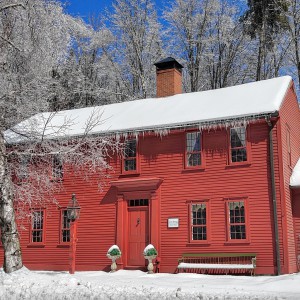How to survive black fly season
| Published: 05-22-2020 12:59 PM |
The air is warm. The grass is green and the flowers are up. Finally after months of cold, snow, ice and gray skies, the outdoors beckons us. The ground is soft, the sun is out and our gardens need tending. We want to rake and tidy our front yards and play in our backyards. And now more than any other time in our world, people are finding solace in being outside hiking, walking and exploring the natural world.
That is why it is such cruelty that just when being outside should feel so gloriously warm, sun lit and good, the blackflies swarm us, biting us and driving us to madness. How is a person to survive?
Here are some handy tips to still enjoy the outdoors during black fly season which typically lasts in this part of New Hampshire from Mother’s Day to Father’s Day.
Dress for Success: If you want to spend a lot of time outside in your garden, doing yard work, or hiking consider donning the haute couture of New England’s black fly season – a bug baffler coat with hood. Zip yourself up in an entire hooded jacket or head-to-toe jumper made from mosquito netting. This will at least offer some protection from their dreaded biting. If wearing netting is not your style, at least try dressing in light colored clothing. Black flies are attracted to dark colors, so avoid wearing black, navy and other similar colors and stick to this season’s whites and lights. This will also help you spot any dark colored ticks seeking purchase on you.
Skip your Shower: Who’s showering much these days anyway? Black flies are attracted to the sweet floral odors often found in our shampoos, conditioners, soaps and perfumes. If you want to go under the radar from these bugs, try heading out before you shower and roll on your deodorant. You might be stinky but you might have less itchy and swollen bites at the end of the day. You could also, of course, choose to perfume your body with some chemicals like DEET and others found in bug sprays, that black flies and other biting insects find repellent.
Escape on the Water: Follow the lead of moose, deer and other wild animals that seek to escape the incessant onslaught of the flies and get yourself out into the water. Hop in your kayak, canoe, fishing boat, row boat, party boat or stand up paddle board. Although black flies hatch from clean, fast moving rivers and streams, they do not often travel out across open water. This makes black fly season the perfect time of year for us humans to hit the water.
Become a Night Walker: Since black flies are active during the day, think about becoming a night gardener, moonlight rambler or night walker. If you do seek solace in the cool evenings, remember to be safe by always having a flashlight with you and wear reflective clothing if you are anywhere near a road. Don’t forget to tell someone where you are going. And when you are out at night, remember to look up at the stars.
Go Urban: Having black flies in your neighborhood is actually a good indication that there is clean flowing water in your community. This is a good thing. In our New England cities and even the downtowns of our smaller towns, there will be less black flies, simply due to less breeding grounds and more pavement. This makes it a perfect time to take an amble through town. Even though you may see less nature, towns and cities have much to offer the curious explorer from interesting cultivated plants and city birds, to historical and architectural features.
Article continues after...
Yesterday's Most Read Articles
 Peterborough Planning Board approves 14-unit development near High Street
Peterborough Planning Board approves 14-unit development near High Street
 Peterborough firefighters continue fishing derby tradition
Peterborough firefighters continue fishing derby tradition
 Franklin Pierce students help foster literacy at Rindge Memorial School
Franklin Pierce students help foster literacy at Rindge Memorial School
 ConVal attorney answers withdrawal questions
ConVal attorney answers withdrawal questions
 Scott Bakula starring in Peterborough Players’ ‘Man of La Mancha’
Scott Bakula starring in Peterborough Players’ ‘Man of La Mancha’
 HOUSE AND HOME: The Old Parsonage in Antrim is a ‘happy house’
HOUSE AND HOME: The Old Parsonage in Antrim is a ‘happy house’
Give Blood and Give Back: This might be the hardest strategy to employ, but remind yourself that when a black fly bites you, you are feeding an essential part of the food chain. After all black flies are a key component to many beautiful and amazing birds that we all love to see in our neighborhoods, like swallows, phoebes, and warblers to name just a few. And that’s not all, black flies are tasty morsels to dragonflies, damselflies, and bats plus the fish they feed when they are an aquatic larva. So maybe consider the blood you donate to the black fly, a way of giving back to the creatures who you do love.
Susie Spikol is the Community Program Director for the Harris Center for Conservation Education in Hancock

 Jaffrey kicks off Earth Week with no-waste potluck and environmental speakers
Jaffrey kicks off Earth Week with no-waste potluck and environmental speakers Gnome Notes: Emerson Sistare – Amor Towles weaves tapestry in ‘Table for Two: Fictions’
Gnome Notes: Emerson Sistare – Amor Towles weaves tapestry in ‘Table for Two: Fictions’ Jaffrey Civic Center hosting Heart of the Arts
Jaffrey Civic Center hosting Heart of the Arts  Project Shakespeare to present ‘The Miraculous Journey of Edward Tulane’
Project Shakespeare to present ‘The Miraculous Journey of Edward Tulane’
